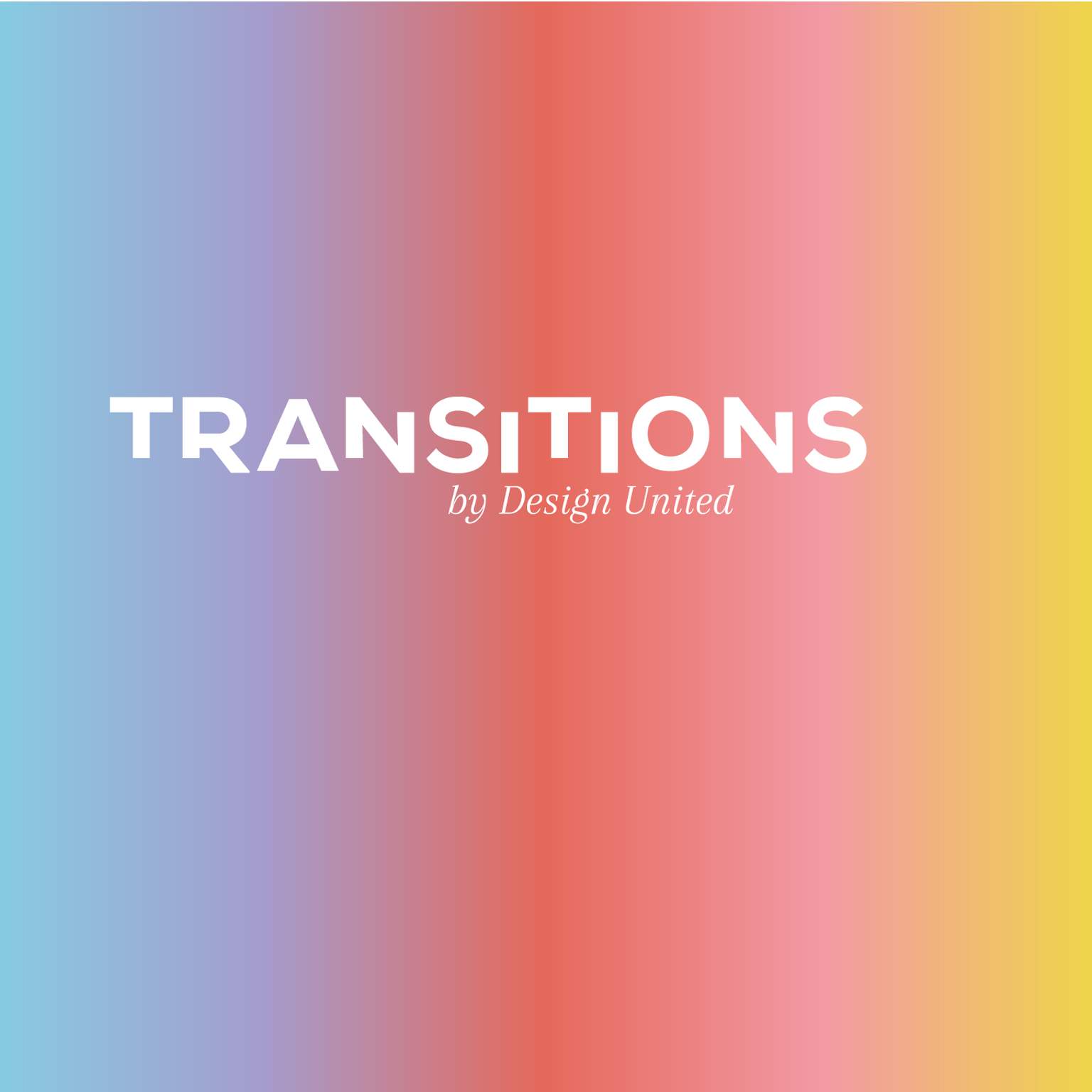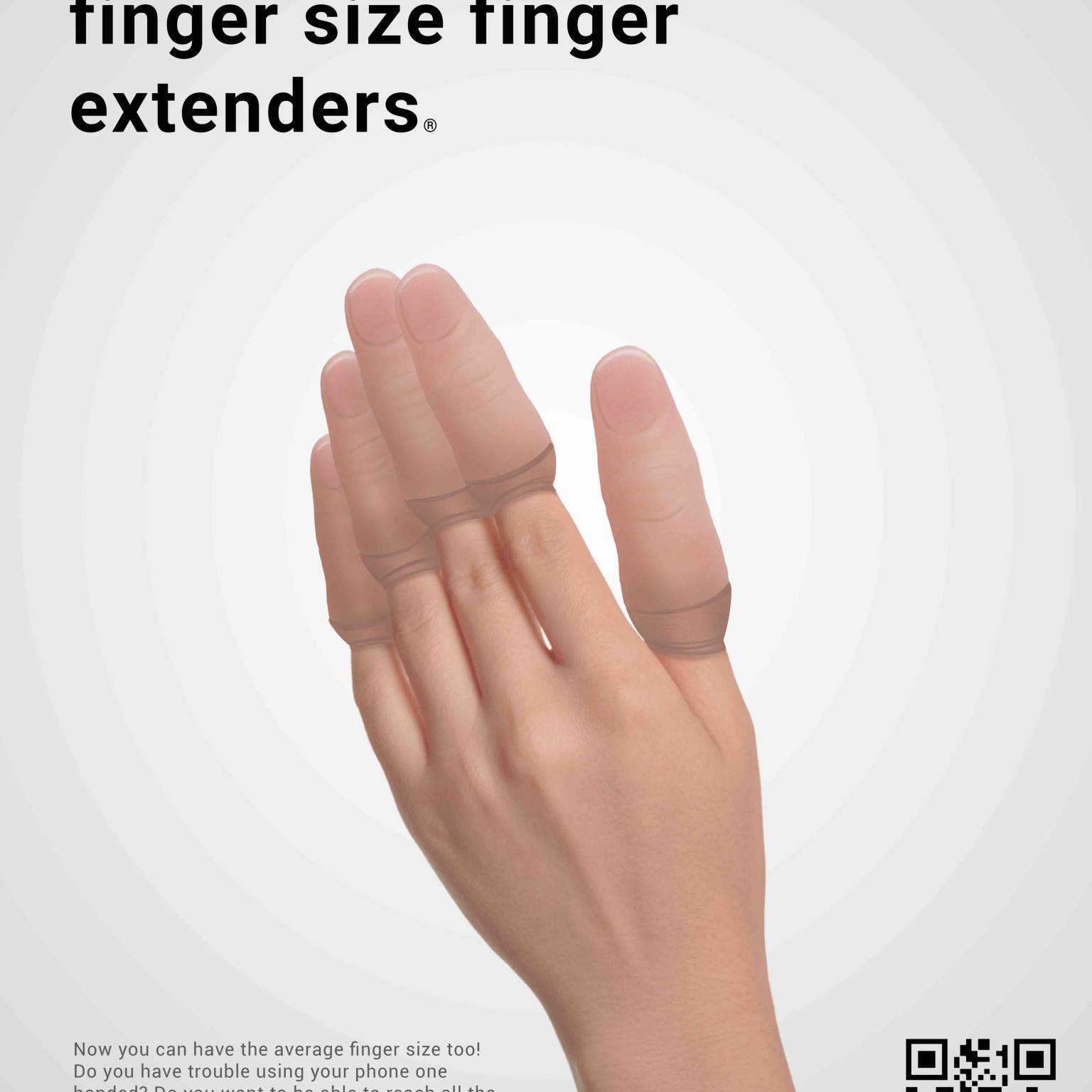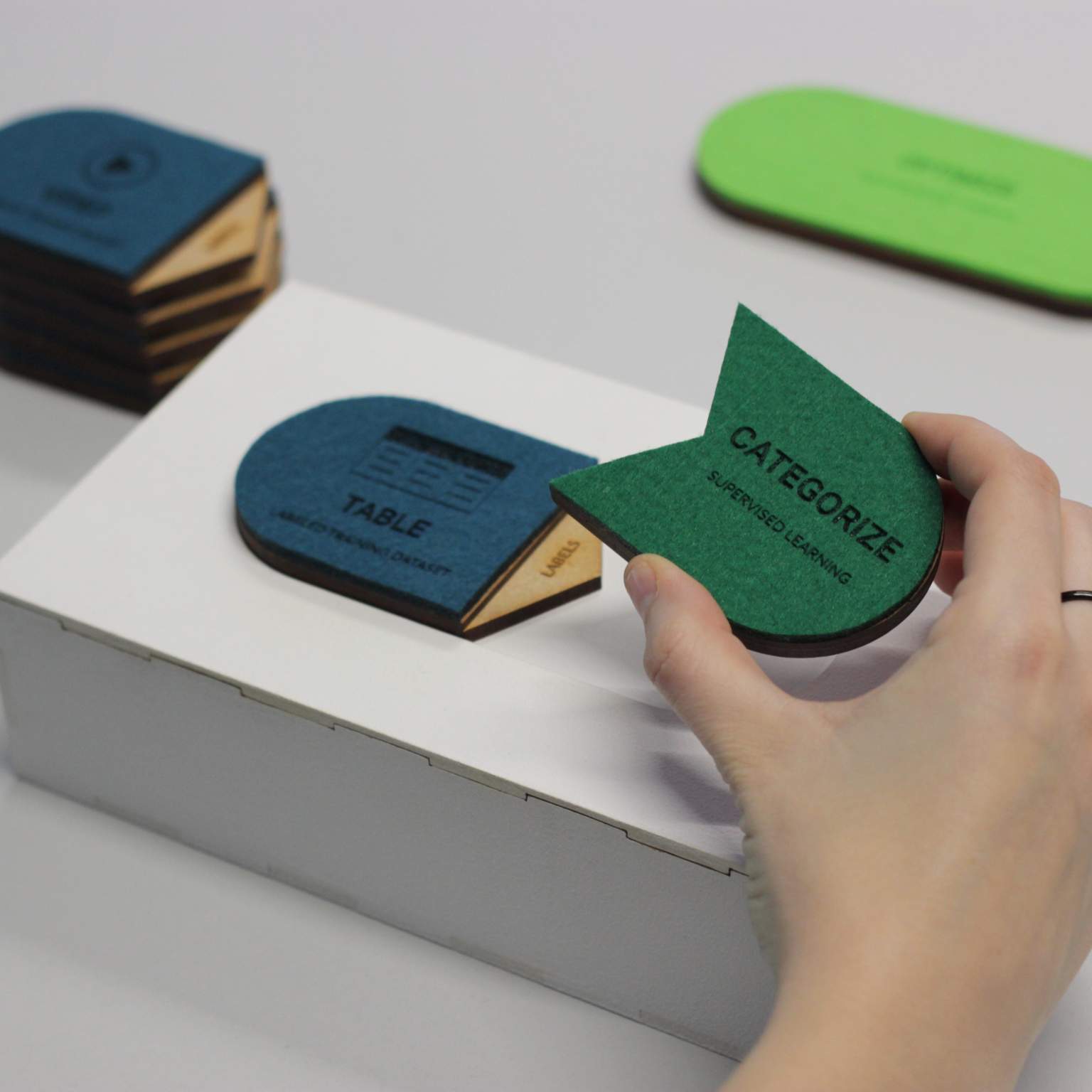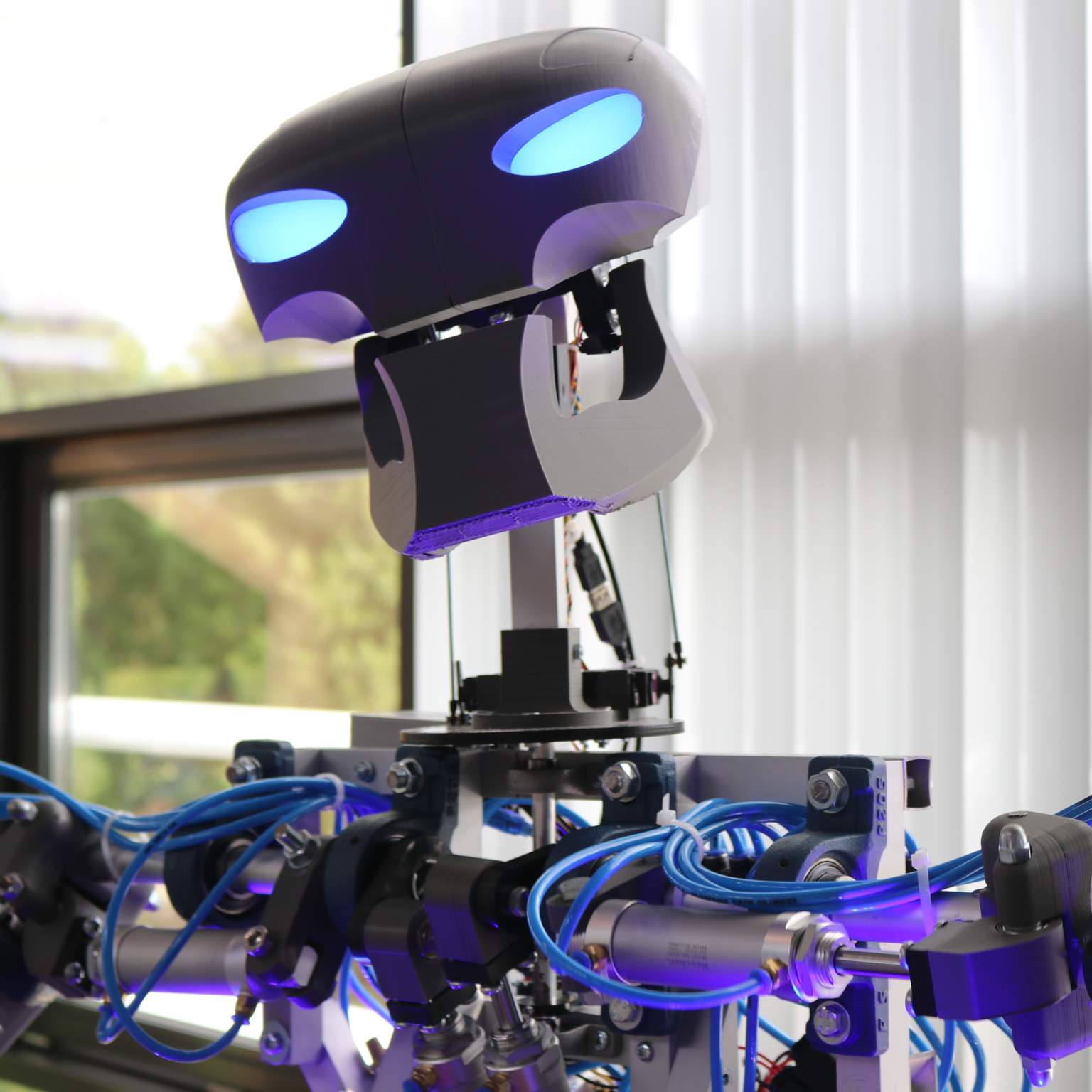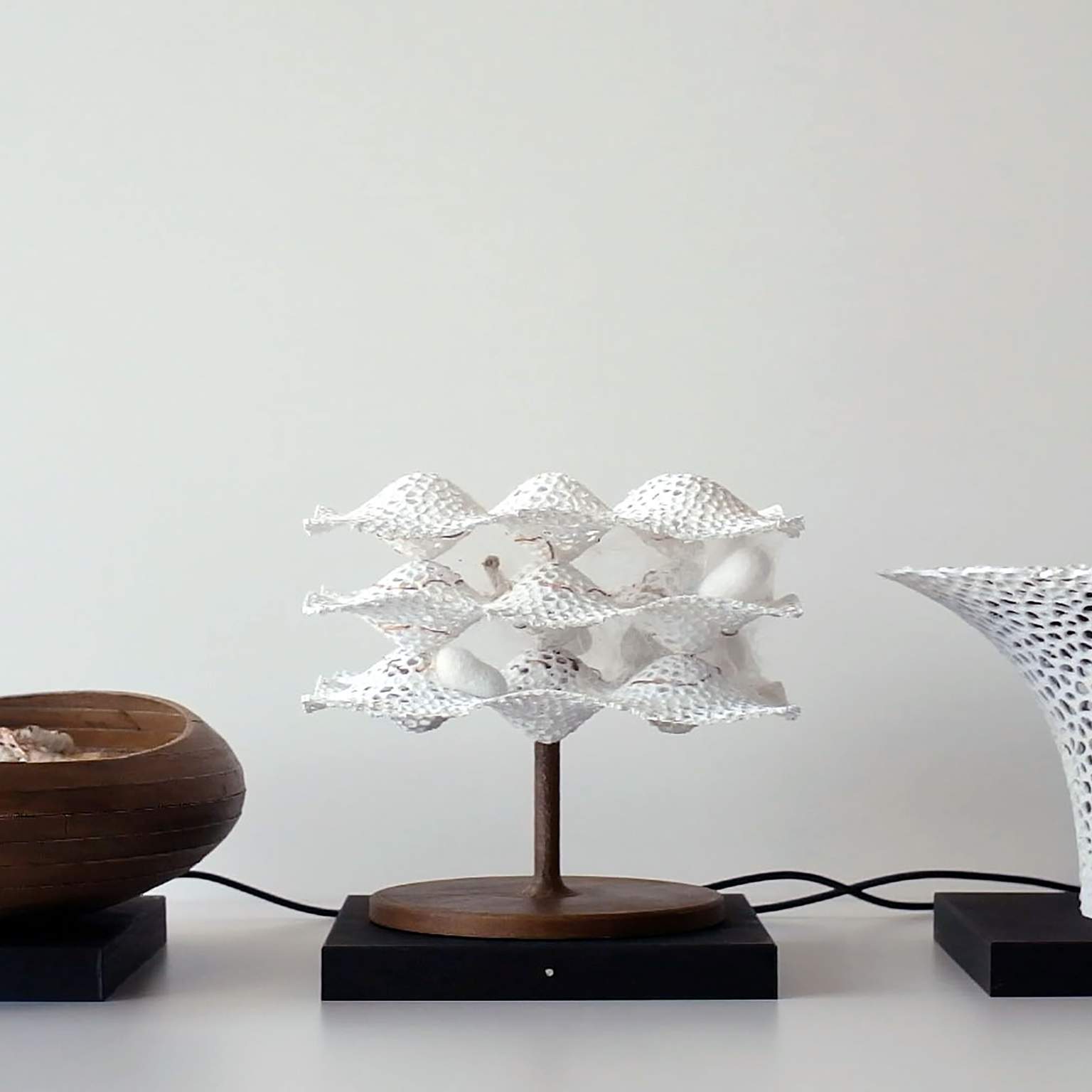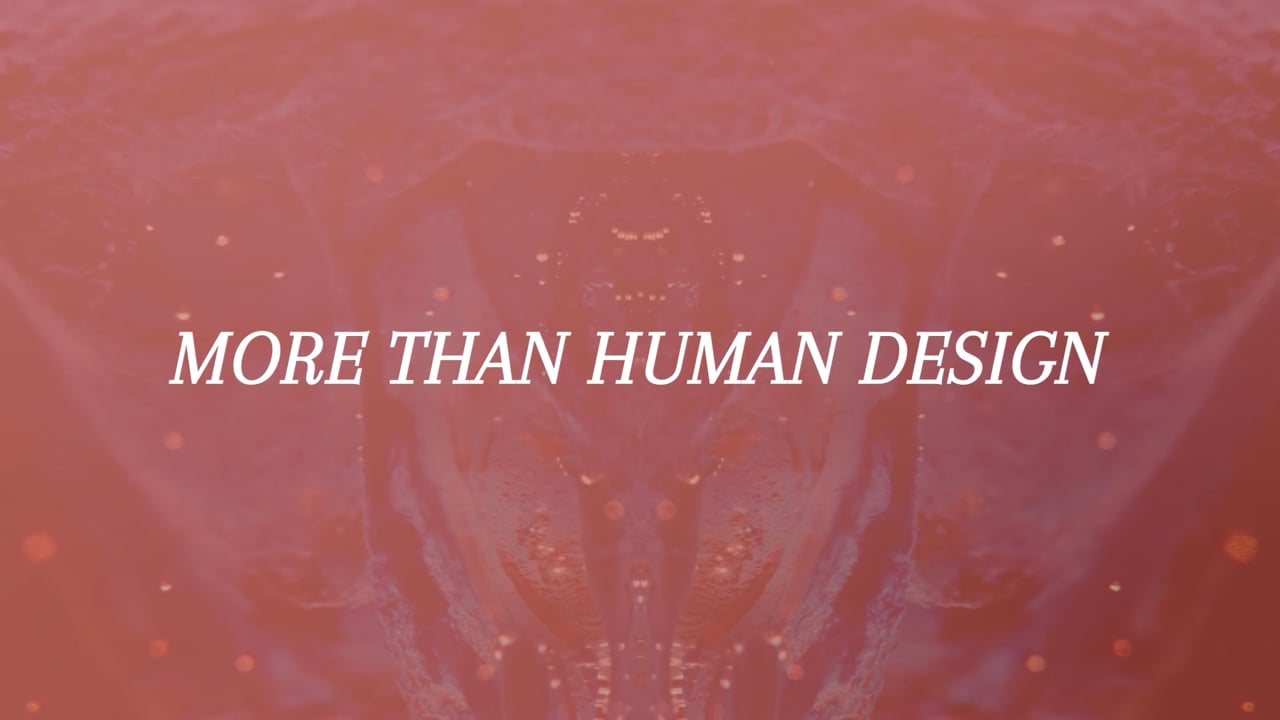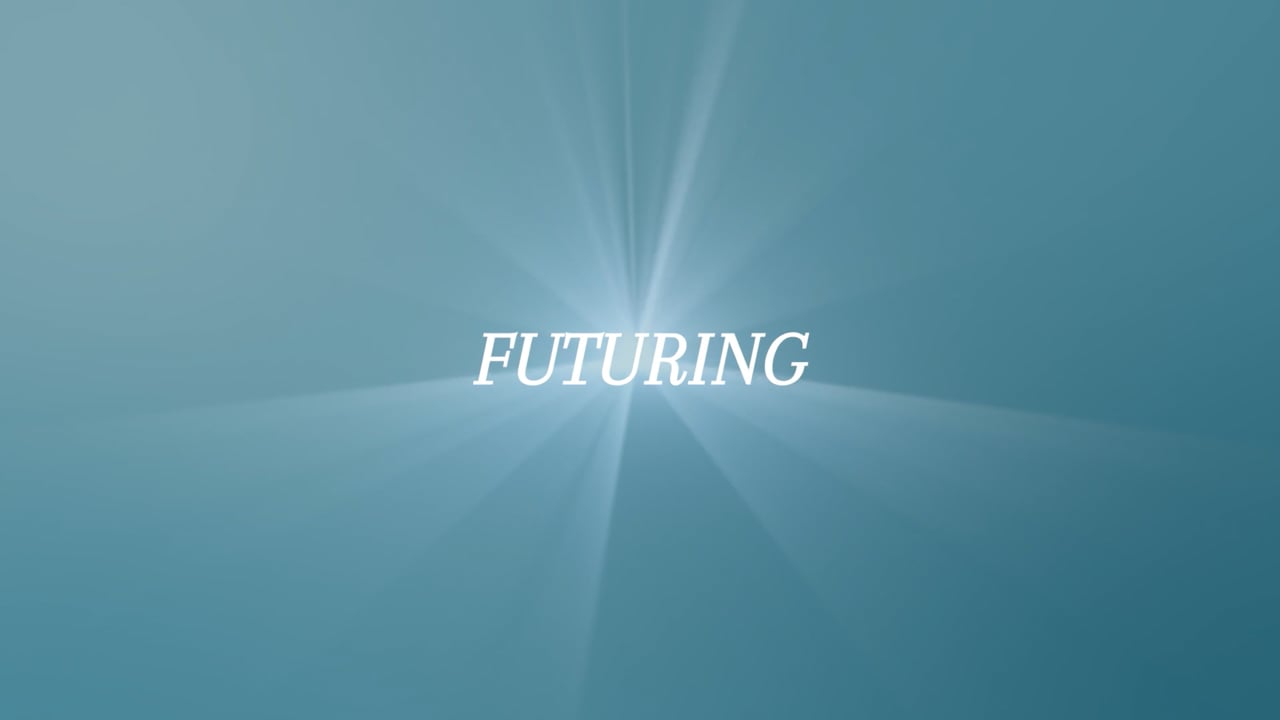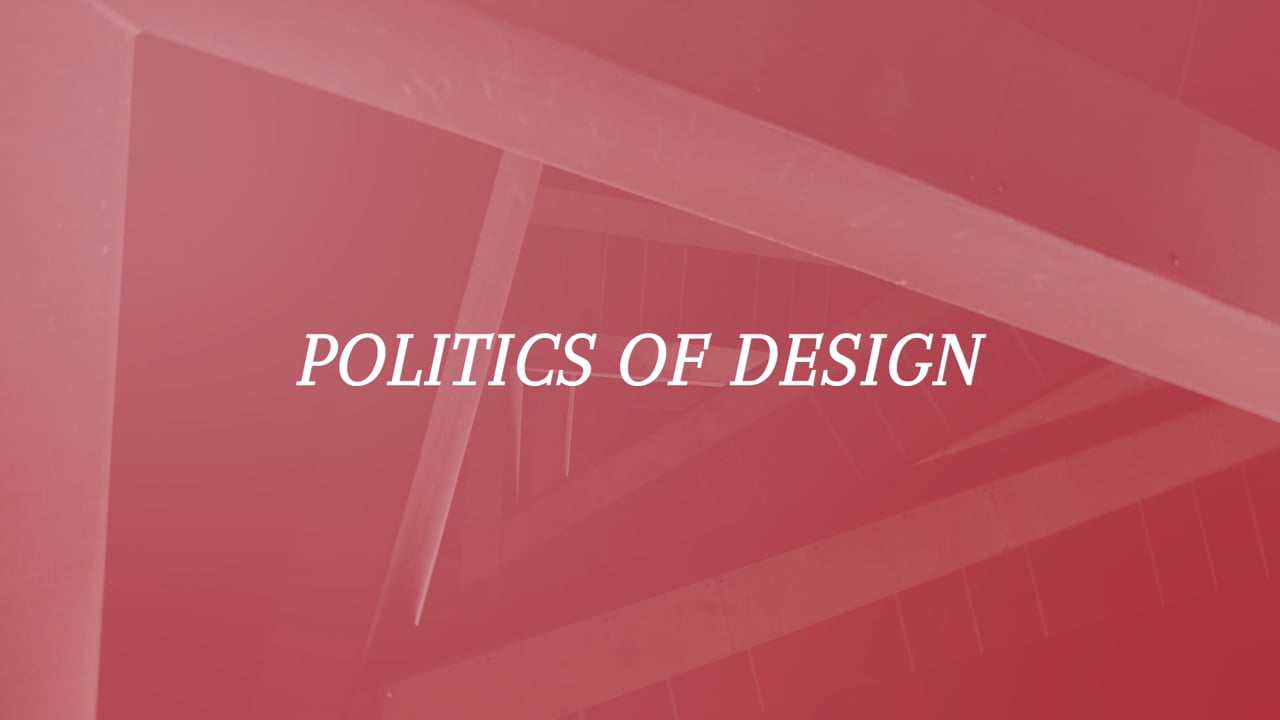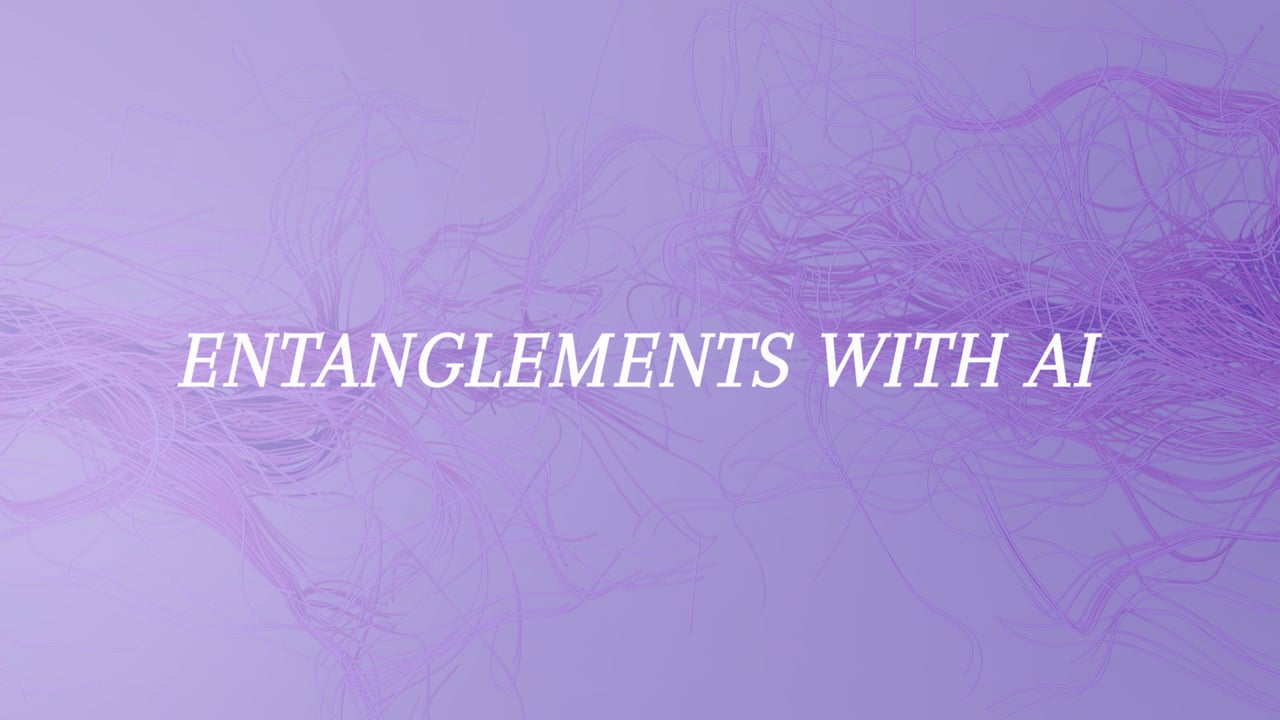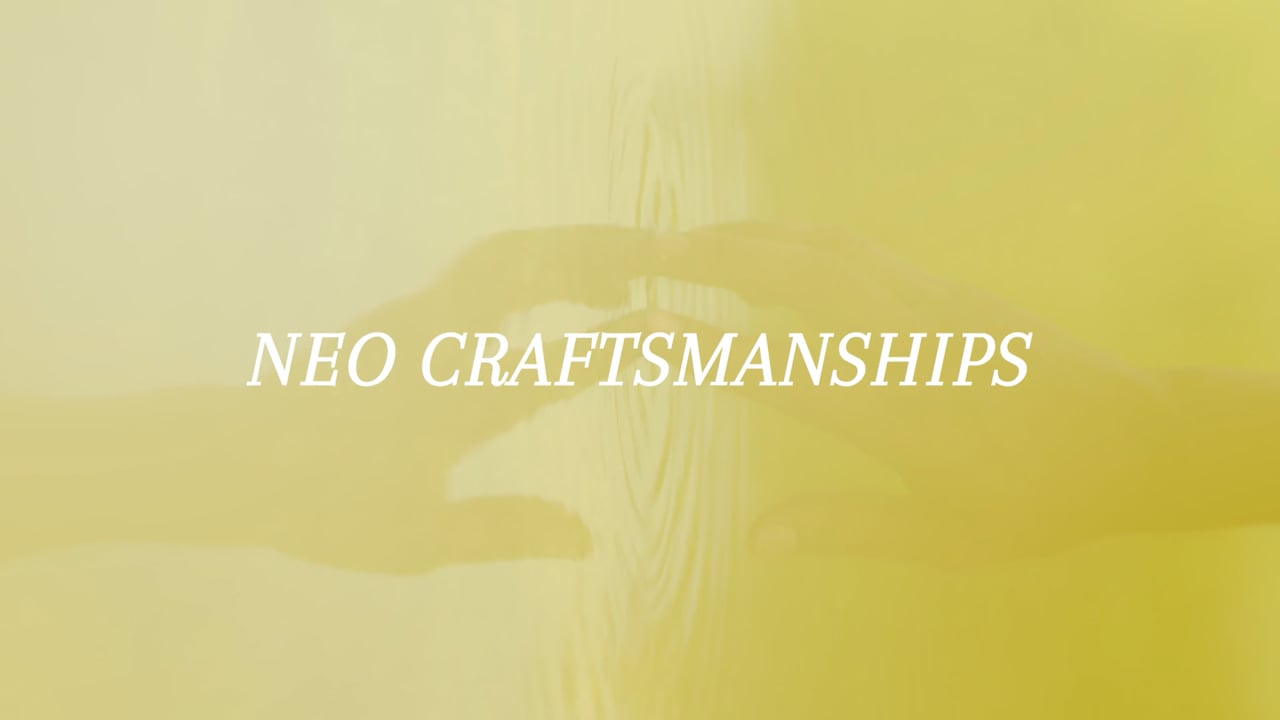We have entered an eco-age that spans and traverses the social, natural, and artificial. How can we create value for future habitats that are natural for the ‘life’ and growth of humans and nonhumans? Can design be at the heart of these ecosystems?
How can we manipulate leverage points that affect all within the system? Which collaborations and ways of thinking are needed to shift towards decentralizing the human? In this theme, we move from human-centered design to ‘more than human’ design.
Scroll down for our Design Research Programme More-than-Human Design in Microlab
Outdoor Experiences and Debate More than Human Design
Microlab 24 October 15:00-18:00
Organised by: Bahareh Barati Eindhoven University of Technology, Dave Murray-Rust Delft University of Technology
We are surrounded by -and constitute of- networks and ecologies of animals, plants, geographies, hyperorganisms, algorithms, and other non-humans. How can we attune ourselves to the needs, desires, interdependencies, and temporalities of existing and emerging species? This suggests a kind of design that looks at constellations, not solar systems, listens to many voices not few, and constantly pushes towards an understanding of the entangled exchanges of energy, matter, and information that surround us and flow through us.
Programme
In this afternoon program, we will engage with more than human networks through a pair of outdoor experiences that develop ways to notice the worlds around and within us. By walking, looking, and sensing we will find connections between (micro)organisms and global processes, between empirical observation and serendipity. We will then, through debate with a wide collection of More than Human designers, work towards a repertoire of the tools and practices that help us extend our sense of design beyond the human species.
We hope to meet you at Microlab!
Participation is free after registration. Please register before 21 October.
Design is a future-oriented practice. Ways to envision the future, speculate and reflect on it, and even rehearse what it may feel like to inhabit alternative futures, are all critical components of the designer's toolkit. As the fate of our planet lies in the balance, the ways design shapes our futures – the kind of relations, experiences, meanings, and behaviours it forms – need to be explored, problematized, and reoriented.
We need to figure out, collectively, where opportunities for responsible innovation lie, and help society move forward in respectful, responsible, and exciting new ways.
Scroll down for our Design Research Programme Futuring in Microlab.
Scroll down for our Design Research Programme Futuring in Microlab
FUTURING WORKSHOP: Connecting Pasts, Presents, and Design Futures
Microlab 25 October 15:00-17:00
organised by: Julieta Matos Castano, Jamila Blokzijl, University of Twente - Roy Bendor, Delft University of Technology, - Dan Lockton, Eindhoven University of Technology - Ioana Mereuta, Wageningen University Research
In this afternoon program, we invite participants to explore connections between pasts, presents, and futures to break free from a simplified sense of the future as an open space for innovation. Come visit a curated exhibition showcasing a collection of 4TU Design United projects, and engage with our interactive ‘dream sequencer’.
Seven Stops for Reflection
The exhibition explores the influence of the past on the future and vice versa. How do our past expectations come to shape our future expectations? How does the present allow us to re-interpret our pasts and create new personal biographies and novel social imaginaries that extend into the future? We invite visitors to reflect on these issues while interacting with projects foregrounding questions about intergenerational dialogues, climate change, and land use, past and future materialities, technologies, and practices.
Dream sequencer
We can learn much from our past dreams and aspirations. Some of our dreams have become realities, while others have remained unfulfilled wishes. What can we learn from our past dreams, and what do we dream about now? How do we envision our future, and what do we think future generations will dream of? Join us to reflect on the evolution of our dreams through time and to discuss design’s role as a form of future-making.
This programme is open to everyone interested in reflecting on how pasts, presents, and futures are connected in and through design, and how they come to shape our collective realities.
Program
- 15:00-15:15 - Welcome and opening of our curated space.
- 15:15-16:30 - Immersion and interaction with ‘Seven Stops for Reflection’* and ‘Dream Sequencer’.
- 16:30-17:00 - Closing words and discussion.
Join us!
Register before 22 October
The exhibition and interaction with the different activities and installations are open, after registration. Participation is free after registration.
We hope to see you at Microlab!
*The ‘Seven Stops for Reflection’ include:
- Future Life Stories (TUD): Establish inter-generational dialogues for urban development.
- Fragments of the Past (TUD): Interact with a scaled version of the Ain-Ghazal sculpture made from a combination of Anthropocenic debris.
- Data Door (TU/e): Engage with and understand hidden data flows and invisible technologies.
- Woolworks (TU/e): Reflect and discuss if woolen clothing can be a viable and sustainable solution for providing summer comfort.
- Schokland (Wageningen): Explore the past Dutch landscapes, to understand the present and preview the future
- ‘Rising Water, Safer Shores’ (UT)- Children are invited to play a board game to engage with climate-related challenges.
- “How did we get this far….” (UT)- Reflect on our past, present, and future mobility choices.
What is the relationship between design, power, and social justice? How do designers navigate the complex intersections of social structures, cultural differences, biases, stereotypes, and domination?
Is design equipped for collective liberation and ecological sustainability? Can design really aim at social good and if so, how does it change the way we practice design?
In this theme, we aim to stimulate discussions, with a focus on projects on social justice, power, agency, and the politics of design.
Scroll down for our Design Research Programme Politics of Design in Microlab
DISCUSSION Politics of Design*
Microlab Eindhoven 26 October 15:00-18:00
organised by: Stephan Wensveen, Caroline Hummels, Eindhoven University of Technology, Annemiek van Boeijen, Delft University of Technology, Deǧer Özkaramanli, University of Twente, Clemens Driessen, Wageningen University Research
Introduction
The Politics of Design is a quite a broad theme, as power plays on different levels. Therefore we have three sub themes. The first level Politics of Designs deals with how the ‘things' that are designed have powerful effects on what we perceive and how we act in the world. We have selected ‘things’ such as products, services, tools, campaigns and land scapes. The second level Politics of Designing is about the design processes and the humans, or non-humans that are involved in the decision making process. How are their voices being heard, how do designers listen, and when do they stop listening? The third level Politics for Design is about how design is being influenced by the powers that be. Who is in power of design? Is it the client, the current economy, the planet or the autonomous designer? Are these powers visible and negotiable, or do they remain hidden in structures one cannot change?
In this afternoon programme we have three rounds of discussion with designers, experts and the audience. Each round will introduce selected design projects that address the sub themes. Panel experts will deepen the conversation with recent insights from research, politics and design practice. The audience can engage with the panel and vote on striking propositions to let their voices be heard.
The program is open to social designers, good students, powerful practitioners, concerned citizens, inclusive politicians and all others.
Afternoon Programme
- 15:00 Welcome and introduction. Moderator: Gabriele Ferri
- 15:15 Round 1: Politics of Designs. Things shape power. Panel experts: Nolen Gertz, Sam Franklin
- 15:45 Round 2: Politics of Designing. Power in the process. Panel experts: Michael Nagenborg, Laurens Kolks
- 16:30 Break
- 16:45 Round 3: Politics for Design. The powers that shape design. Panel experts: Caroline Hummels, Erica Bol
- 17:30 Wrap-up
- 18:00 End and drinks
Register before 23 October!
Participation is free after registration.
*Design is not neutral. We can identify politics in any form of design. Whether it is, for example, a seat belt, a car, an infrastructure, laws and regulations, or an entire energy supply system. Everything that is designed influences socio-cultural and economic power relations in one way or another. The things we design have agency and influence how people behave and act in the world. Also, the design process is political where numerous choices are made that inherently include and exclude people, non-humans, materials, manufacturing methods, etc. Finally, in addition to the politics of design and the design process, there is also a political structure that steers design researchers in a certain direction and that can be regarded as a process for which design make a difference.
In this theme we ask questions and hope to find answers. What is the relationship between design, power, and politics? How do things shape our world and the world of others? How do designers navigate the complex intersections of social structures, cultural differences, biases, stereotypes, and domination? Is design equipped for collective liberation and ecological sustainability? Can design really aim at social good and if so, how does it change the way we practice design?
This theme welcomes epistemological and methodological discussions as well as focuses on projects on agency of things, social justice, inclusion of humans and non-humans in the design process, and the politics for design.
Artificial Intelligence (AI) is fundamentally shaping future societies. It’s therefore important to understand AI’s role as a design material. This is more than the computation - AI is a technology that can transform everyday activities and experiences and transform design practice itself.
Questions we ask are, how can designers productively engage and work with AI? How can this be done collaboratively with the diverse perspectives and understandings of relevant stakeholders? And lastly, how can we do so responsibly and ethically?
Scroll down for our Design Research Programme Entanglements with AI in Microlab
WORKSHOP Entanglements with AI - AI as our material, reflective tool and partner
Microlab Eindhoven 27 October 15:00-18:00
Organised by: Cristina Zaga, University of Twente, Sara Colombo, Mathias Funk, Eindhoven UNiversity of Technology, Phil Van Allen, Delft University of Technology, Teaching Assistants: Dominique Jansen and Suyash Sharma, University of Twente
Introduction
AI is positioning itself as a useful tool not only to tackle societal challenges, but also to create, shape, and reflect on future products and systems. As such, AI becomes a material and a partner in the design process for which we need new tools and approaches from a human-centered and post-human centred perspective. At the same time, AI can serve as a reflective tool to co-develop with stakeholders AI ethical methods to design just and power aware technology.
In this afternoon program, we will immerse ourselves in the entanglements we currently experience between AI and Design. We will do so with practical hands-on activities featuring the most exciting projects of the 4TU DesignUnited. The goal of the afternoon is to understand what tools, methods, and techniques we could use to design for, with, through AI and for society, and to connect with the design community working in the field. The program is open to design researchers, students, and practitioners. The programme is open to design researchers, students, and practitioners.
Programme
- 15:00 Welcome, introduction by Cristina Zaga, Sara Colombo, Phil van Allen
- 15:30 AI as a design material and partner.
- Guest talk by Nadia Piet designer, researcher and founder of AIXDesign a community of practitioners using AI in pursuit of joy and justice
- Mini-workshop
- Mix and Match ML Toolkit (TU/e) | Anniek Jansen and Sara Colombo
- Understanding people’s perspectives through AI | Triggered (TU/Delft) | Anne Arzberger, Vera van der Burg, Senthil Chandrasegaran and Peter Lloyd
- Things Constellation Visualizer (TU/e) | Janet Huang
- 16:30 break
- 16:40 AI as a reflective tool (to design for justice).
- Mini-workshop
- DEI4EmbodiedAI tools to design for justice (UTwente, 4TU NIRICT) | Minha Lee representing the 4TU team
- Steering Stories for Driving Automation (TU Delft) | Maria Luce Lupetti, David Abbink, and Luciano Cavalcante Siebert
- Mini-workshop
- 17:15 Round table: Future horizons for design partnership with AI - moderated by Cristina Zaga, Sara Colombo, Mathias Funk, Phil van Allen
- 17:45 Wrap up - Closing
- 18:00 End and drinks
Register before 24 October. Participation is free after registration
With critical debates on the future directions of design in full swing, crafters of advanced enabling technologies have already started to make the new everyday a reality.
Deepfake digitalisations are already out there, shape-changing food designs are served in top restaurants, and smart materials are used to weave sustainable fabrics.
In this theme, we focus on the question of how new craftsmanships emerge in current design practice, presenting a 3-dimensional perspective through Materials, Machines, and Methods.
Scroll down for our Design Research Programme Neo Craftsmanships in Microlab
WORKSHOP Neo-Craftsmanships – Material, Machines, and Methods
Microlab Eindhoven 28 oktober 15:00-18:00
Organised by: Jacky Bourgeois, Delft University of Technology, Kristina Andersen, Miguel Bruns, Eindhoven University of Technology, Wouter Eggink, University of Twente
Introduction
What is Neo? And what does it mean to ‘craft’ in today’s fast, digital, upscale world? Is technology shaping the craft of tomorrow, or are designers crafting opportunities with technology to shape societal transitions?
In this afternoon program, we explore Neo-Craftsmanships and questions from three perspectives: Materials, Machines, and Methods. We will dive into the craft details of exciting projects from the 4TU DesignUnited, along with an ethnography of the Dutch Design Week. A World Café will lead us to informally revisit the themes of the week with a Neo-craftsmanship lens.
The goal is to connect design researchers and practitioners to discuss how using materials, machines, and methods shapes our societal transitions and transforms the designers’ practice. The programme is open to design researchers, master's students, and practitioners.
Programme
- 15:00 welcome and introduction: crafting with new materials, with the latest machines and through new methods
- 15:30 Design United example projects with Materials, Machines and Methods, DDW Ethnography, and Craft on DDW
- 16:30 break
- 16:45 World café: Neo-craftsmanship in More than human Design, Futuring, Politics of Design and Entanglements with AI
- 17:45 Discussion Wrap up
- 18:00 end and drinks
Register before 25 October: Participation is free after registration:
